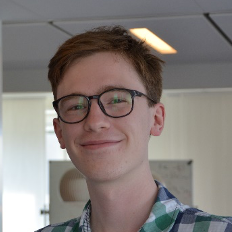
Last, but not least, in our series of interviews on Digital Futures Summer Research Internships (SRI) Programme we meet Ludvig.
Meet Ludvig Lindström that finished his third year of Engineering Physics at KTH. After the summer, he will be doing his master’s in Theoretical Physics.
What made you apply for this internship?
It was a unique opportunity to practice and harness the skills I’ve learned during my years at KTH, as well as a chance to gain research experience.
Tell us a bit about the project you are working on and what you came across so far?
I am working on leak detection and isolation in water distribution networks. Leak localisation has become increasingly important as our water reservoirs are depleting. The goal of my project is to find a novel method for locating leaks using sensors. It could hopefully decrease the cost of pipe maintenance. So far, I have found an equation that determines the location of a single leak on a straight pipe by measuring pressure and velocity on either side of the pipe. This equation can also be applied to a more complex system of pipes and sequences of leaks. The project ended up taking a starkly different route from the one I had preconceived. I imagined work more closely related to optimisation and simulation. Still, I ended up doing more analytical work.
Any learnings from the SRI program that you would like to share?
The summer research internship has provided a fuller picture of conducting research, which will help set expectations for future projects in my master’s thesis. The training has also provided a template for successfully conducting knowledge exchange via regular meetings with graduate students working with similar projects as I.
What about your plans for the future? How does this internship connect with those?
In the future, I hope to do a PhD. I believe this internship has provided a good foundation for that by understanding how to conduct research and share and present your research. These skills will also come in handy during my upcoming master’s thesis.





